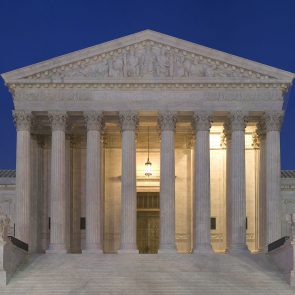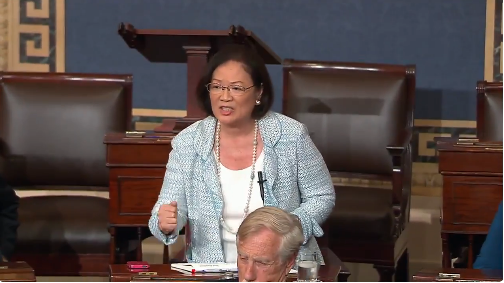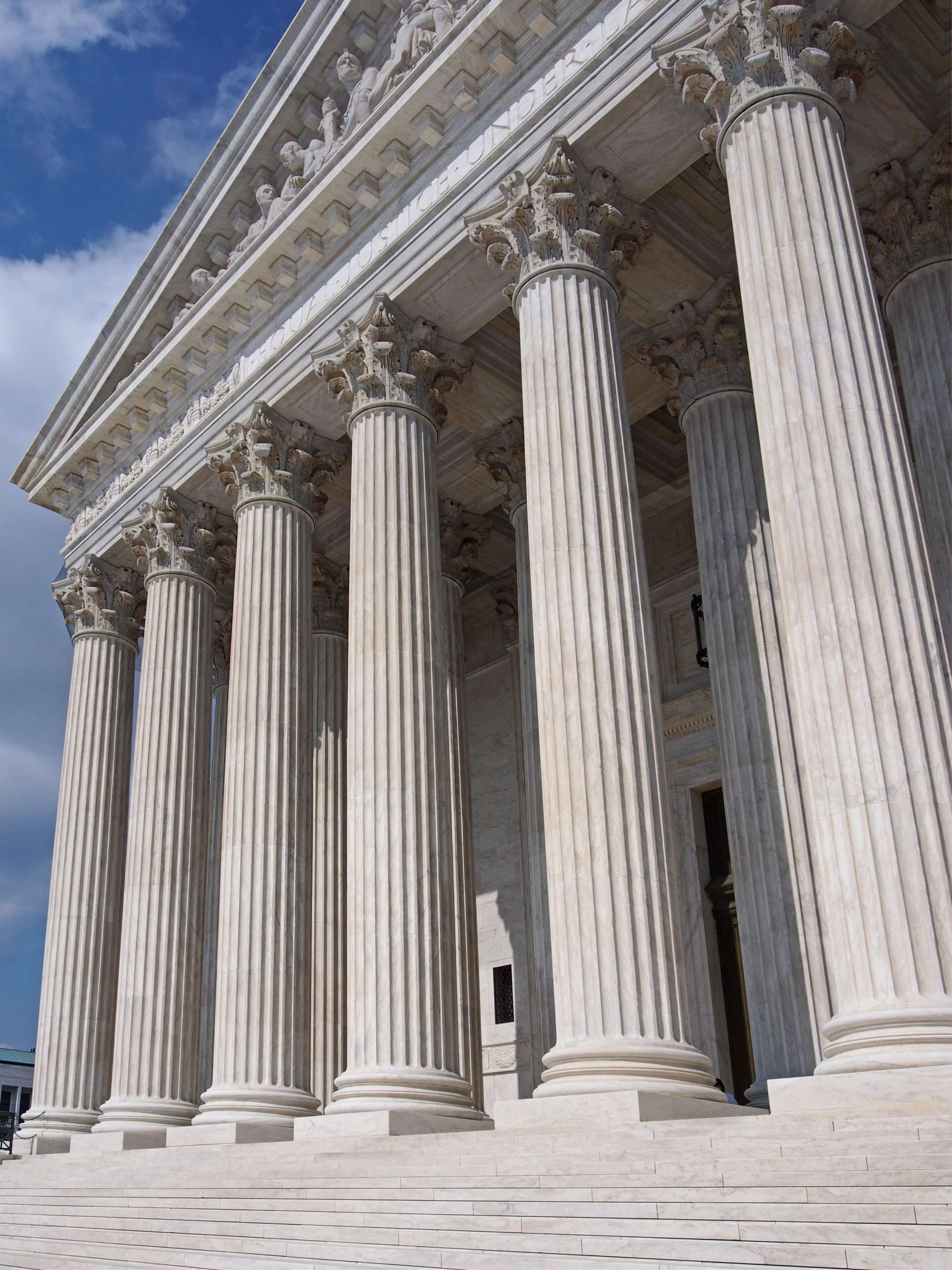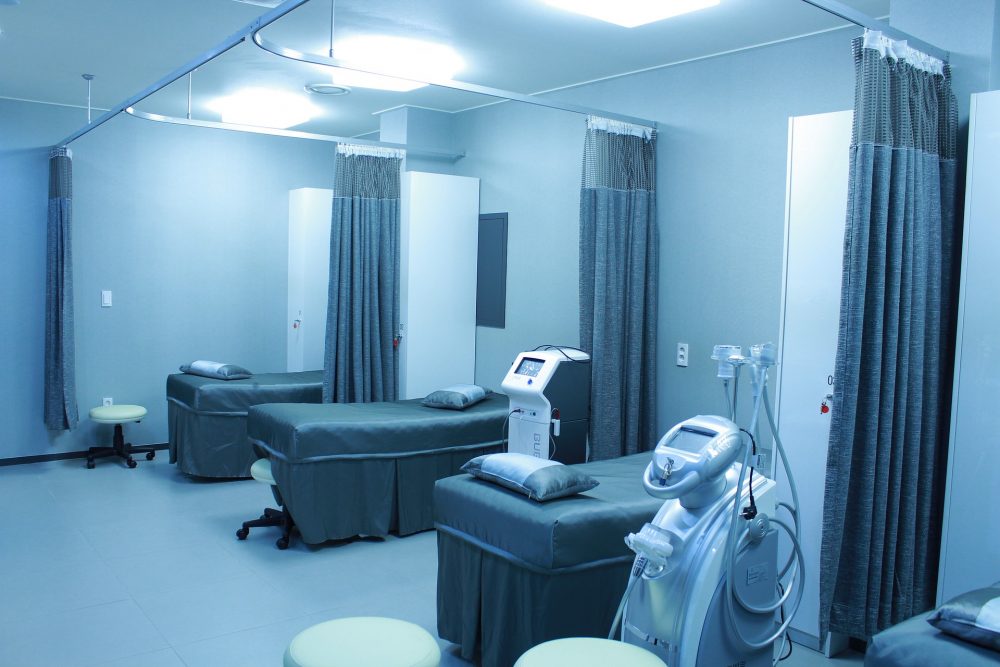We Won Our Lawsuit: Another Loss for the Trump-Pence Administration, Another Victory for Patients’ Rights and the Rule of Law
 The National Women’s Law Center teamed up with lawyers from Planned Parenthood Federation of America, Democracy Forward Foundation, and the firm Covington & Burling to represent Planned Parenthood in a lawsuit brought in federal court in New York challenging the discriminatory Trump-Pence Administration refusal of care rule, which would have given broad new rights to health care workers to put personal beliefs ahead of patient care. The rule would also have allowed the government to take extreme measures against entities that did not comply with the rule.
The National Women’s Law Center teamed up with lawyers from Planned Parenthood Federation of America, Democracy Forward Foundation, and the firm Covington & Burling to represent Planned Parenthood in a lawsuit brought in federal court in New York challenging the discriminatory Trump-Pence Administration refusal of care rule, which would have given broad new rights to health care workers to put personal beliefs ahead of patient care. The rule would also have allowed the government to take extreme measures against entities that did not comply with the rule.
On Wednesday, November 6, 2019, the New York federal court struck down the rule in its entirety. The court’s 147-page opinion explains that Congress never gave HHS authority to issue this regulation and that HHS’s claimed justifications for the rule—primarily that it was overrun with complaints and secondly, that HHS did not have sufficient enforcement powers to address them—were patently false. And on November 7, 2019, a second federal judge in Washington state issued a second order striking down the rule, reiterating that the rule is unlawful and cannot stand. Without these victories, the rule would have been allowed to go into effect as scheduled on November 22, 2019.
These decisions are huge wins – both for patient health and for the rule of law.
Background on the Rule and the Litigation
As we explain more fully here, the refusal of care rule would have allowed virtually any individual or entity involved in patient care—including a receptionist, elevator operator, or ambulance driver—to refuse to do their job and to deny patients care and information, even in emergency situations, simply by claiming a religious or moral objection and without any regard for the provider or the patients’ needs. The rule would have allowed these and other workers in the health context to refuse to perform even activities that occur on a different day than the objected-to procedure, like providing truthful information to pregnant persons about all their options or scheduling a person for transition-related care. The rule also would have tied the hands of health care providers like Planned Parenthood from ensuring patients receive comprehensive care by forcing such providers to hire and keep on staff a doctor unwilling to do the very job they were hired to do. HHS initially proposed the rule in January 2018 to coincide with an anti-abortion march in Washington, D.C., and when it finalized the rule in May 2019 President Trump made clear that the intent was to restrict patients’ access to abortion.
Our case was combined with lawsuits brought by a coalition of 19 states, the District of Columbia, and three cities led by New York, as well as a case brought by the ACLU on behalf of the National Family Planning Reproductive Health Association and Public Health Solutions. There was so much opposition to this rule that several other medical providers, advocacy groups, states, and cities likewise filed suit in federal courts in California, Washington state, and Maryland. The lawsuits all claimed that the rule is unlawful, unjustified, and unconstitutional. (See here for a summary of the legal claims).
Highlights from the Court’s Opinion
The New York judge agreed with NWLC and its partners that the rule is unlawful. Here are some highlights:
The court concluded that HHS had no authority to issue this rule.
A basic principle of administrative law—the law governing federal agencies—is that agencies have no power to act unless Congress grants them that power. In the refusal of care rule, HHS drastically expanded the scope of already harmful federal refusal statutes and assumed for itself broad new enforcement powers, including the power to withhold all HHS funding for a violation of the statutes or the rule itself. HHS repeatedly boasted about these new enforcement tools. But, as we explained to the court, Congress never gave HHS permission to do this.
So, HHS reversed course in litigation, bending over backward to try to walk back just how substantive and sweeping the rule actually is. Fortunately, the court saw through this. The court recognized that the rule is “in key respects transformative” and will “upend the legal status quo”—just as the Trump-Pence Administration boasted it would—particularly because it departs from decades-old law governing how religion is accommodated in the workplace, gives new individuals and entities an absolute right to refuse to provide care to patients, and imposes onerous new penalties. (Page 31-32). The court agreed that HHS lacked the authority to issue key parts of the rule.
The court held that the rule conflicts with longstanding federal laws.
Title VII, the federal law prohibiting employment discrimination, has long provided protection to employees who have religious objections to employment activities. Title VII provides the appropriate balancing in the workplace as to when and how religion is reasonably accommodated, taking into consideration the interests of both the worker, the employer and as part of that, the needs of the business including the clients or customers. But in passing this rule, HHS dramatically changed these protections in a way that gave the employees with religious objections rights over everything else – including patients’ health and lives. The court was particularly concerned about a prior case where a nurse had refused to assist in an emergency cesarean-section for a woman who was “standing in a pool of blood.” (Page 34). Under the rule, the religious beliefs of a hospital worker would be given priority over all other considerations – and if this were the case, the hospital could not safeguard patients’ lives. The court rejected this extreme position.
For similar reasons, the court found that the rule ran afoul of EMTALA, a longstanding law requiring hospitals to provide emergency care to patients in emergency situations. At oral argument, HHS admitted that if this rule went into effect, an ambulance driver could refuse to complete a trip to the hospital after learning that the pregnant patient needs to terminate an ectopic pregnancy and that the hospital could be held liable for disciplining the driver. The court concluded that this leaves hospitals and other providers no “meaningful leeway to deal with a medical emergency,” and so there is a “clear conflict” between the rule and EMTALA. (Page 76).
Because an agency like HHS can’t create a rule to override federal statutes, the court struck the rule down.
The court concluded that HHS’ claimed justification for the rule was false.
Under federal law, courts can reject agency rules that are unnecessary or irrational. The Administration and Departments like HHS must provide a “reasoned explanation” when making big policy changes like this refusal of care rule. Here, HHS claimed that the rule was necessary because of an alleged spike in complaints alleging violations of the refusal laws. However, the agency’s justification for the rule was not true. The court’s own review of the complaints revealed that of the 343 complaints HHS claimed to have received, only seven were fairly characterized as relating to the federal refusal laws. (Page 83). As such, the court concluded that the rule was a solution in search of a problem.
The court agreed that the Trump-Pence Administration cannot include provisions in a final rule that weren’t proposed, and it cannot fix problems in a final rule by making empty litigation promises.
The court also noted that the Trump-Pence Administration cannot surprise the public by adding things to a final rule that were not included in the rule they proposed. The court also held that the Trump-Pence Administration cannot provide one reason for a rule when it’s finalized and others when it is being challenged in court. And, the court said that the Administration can’t walk back what the rule plainly says by making after-the-fact promises in litigation.
This is just common sense and yet the Trump-Pence Administration has made a pattern of coming up with alleged assurances that it won’t take the actions allowed by the rules. For example, even though the rule provides dramatic remedies such as taking away all an entity’s HHS funding if it does not automatically provide absolute religious accommodations to healthcare workers, the government tried to say in the litigation that it would maybe only take away part of an entity’s funding. That’s not how rulemaking works. We cannot be assured by such halfhearted and late-coming promises after the fact.
Our comments regarding proposed rules MATTER.
In the court’s opinion, it cited two public comments regarding the proposed rule as part of its legal analysis. As many of you know NWLC has engaged in submitting comments and engaging with others to submit comments regarding proposed rules across our program areas as a way to fight back against a slew of harmful policy changes. In this context, the court specifically noted comments as one piece of the reasoning that supported the court’s ultimate decision striking down the rule. The court cited to comments—including by NWLC—that raised concerns about legal and other problems with the rule before it was finalized. Indeed, the court stressed that “HHS’s decision not to include an exception for emergencies was deliberate” because several commenters pointed out that application of the rule in emergency situations conflicted with EMTALA, but the agency chose not to change it. (Page 76, FN 43). Likewise, the court noted that many organizations had pointed out that this rule departed from the Title VII framework. The court’s reference to these comments, including from ACLU, the Disability Coalition, and the National Center for Transgender Equality (Page 106, FN 65) is a reminder of the importance of voicing our concerns about harmful and unlawful rules to policymakers.
Amicus briefs (“friend-of-the court” briefs) in support of our cases MATTER.
In its opinion, the court noted that several groups filed amicus, or “friend-of-the-court” briefs in support of our lawsuit and noted that these were part of the record. Having support for patients’ rights and the rule of law from so many sectors was so helpful to the plaintiffs and their support is very much appreciated. Notably, the court listed these amicus briefs in the opinion (Page 29, FN 13) by name including the National Center for Lesbian Rights, the Scholars of the LGBT Population, the Callen Lorde Community Health Center, Care Resource Community Health Centers, Inc., the National LGBTQ Task Force, and the National LGBT Cancer Network, the Institute of Policy Integrity, major medical organizations including the American College of Obstetricians and Gynecologists and the American Medical Association, and 15 local governments. We are grateful for all these organizations’ time and efforts lending support for this case in the name of patient rights and the rule of law.
Next Steps
We are thrilled with this major victory against the Trump-Pence Administration and know that the fight is not yet over. The Administration may appeal these decisions in the coming weeks. Whatever they do, we will be there in court to fight at every turn and demand that this Administration both follow the rule of law and PUT PATIENTS FIRST.






